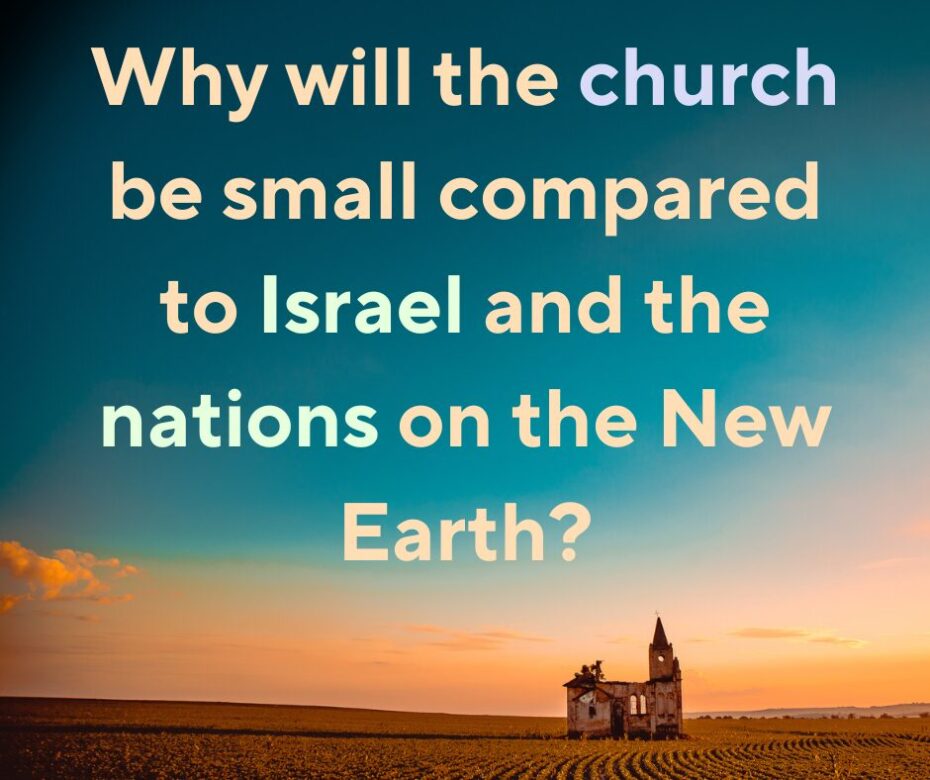The topic for our May 19-22 annual conference is “Dispensationalism and Eternal Rewards.” Many people do not know what dispensationalism is.
The word dispensation occurs in some English translations (KJV, NKJV, ASV, JUB, Douay-Rheims Catholic Bible, TMB, YLT, Wycliffe) in four NT verses (1 Cor 9:17; Eph 1:10; 3:2; Col 1:25). Other translations of those verses read plan (NASB, RSV, NRSV, ESV, GNT) or administration (HCSB, NET, LEB, WEB).
The word dispensation means “a system of revealed commands and promises regulating human affairs” (merriam-webster.com). It translates the Greek work oikonomia, which means “stewardship or management of a household” (BDAG).
Dispensationalism approaches the Bible with the view that while there has always been only one way to be regenerated—by faith alone in the Messiah–– God’s commands have changed and will change during various dispensations or administrations.
Dispensationalism is closely linked to Free Grace Theology. Most who hold to the Free Grace position are dispensationalists, even if they do not realize it. Most who hold to Lordship Salvation and works salvation are not.
Dr. Charles Ryrie called the distinction between Israel and the church the sine qua non of dispensationalism. In other words, this is the heart of the system of thought. You cannot be a dispensationalist if you believe that the church has replaced Israel and hijacked Israel’s promises.
In this view, Israel will be a distinct group during the eternal reign of Christ. The church will be the Body of Christ, and Israel will be God’s chosen people. There will also be a third group called the nations. See 1 Cor 10:32.
The church on the new earth will be made up of all believers from Pentecost in AD 33 until the time of the Rapture. After the Rapture, the number of people in the church will be fixed, since glorified saints will not reproduce.
Redeemed Israel on the new earth will be made up of all Jewish believers who died before Pentecost in AD 33 or who come to faith during the Tribulation or the Millennium. The nation of Israel will grow astronomically—like the number of stars in the sky—during the Millennium because there will be believers and children under the age of accountability who survive the Tribulation and go into the Millennium in natural bodies.1 It is likely that the nation will have a population numbering in the billions or tens of billions by the end of that time.
The nations on the new earth will be made up of all Gentile believers who died before AD 33 or who came to faith during the Tribulation or the Millennium. The nations will grow exponentially during the Millennium as well since there will also be Gentile believers and children who go into the Millennium in natural bodies.
Another distinction of dispensationalism is a literal hermeneutic. The word hermeneutic means “a method of interpretation.” Biblical hermeneutics is, therefore, a method of interpreting the Bible.
Dispensationalist Dr. David L. Cooper (1886-1965), founder of The Biblical Research Society, famously said:
When the plain sense of Scripture makes common sense, seek no other sense; therefore, take every word at its primary, ordinary, usual, literal meaning unless the facts of the immediate context, studied in the light of related passages and axiomatic and fundamental truths, indicate clearly otherwise.
While all systems of theology would claim to agree with that statement, the truth is otherwise. One example is the way non-dispensationalists understand passages that teach the Rapture, the Tribulation, and the literal thousand-year reign of Christ. Another is the way in which they interpret the books of Daniel and Revelation.
In part 2 we will consider how God’s commands have changed and will change from one dispensation to the next.
Keep grace in focus by seeing the dispensational changes that are evident in God’s Word.
____________
1Zane Hodges believed that only those under the age of accountability, Jewish and Gentile, would go into the Millennium in natural bodies because Paul said “Flesh and blood cannot inherit the kingdom of God” (1 Cor 15:50). Inheriting the kingdom refers to ruling in it, not simply getting in. People in natural bodies cannot rule with Christ in the life to come. Yet the Lord said to the believing Gentiles who survived the Tribulation, “Come, you blessed of My Father, inherit the kingdom prepared for you…” (Matt 25:34). See also Matt 19:14.


